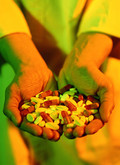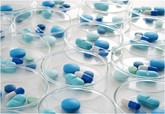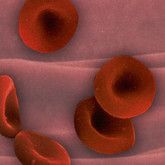Biosimilars/Research
G-CSF biosimilars – World Marrow Donor Association position
The World Marrow Donor Association (WMDA) has expressed its position on the use of granulocyte colony-stimulating factor (G-CSF) biosimilars in healthy donors in an article published in the journal Haematologica [1].
Biosimilarity and interchangeability under the BPCI Act
In the US, the Biologics Price Competition and Innovation (BPCI) Act was signed into law on 23 March 2010, giving FDA the authority to approve biosimilars. FDA then issued guidelines for biosimilar applications in February 2012 in the form of three draft guidance documents [1]. Despite this, there remain scientific issues regarding the assessment biosimilars and the criteria for establishing biosimilarity and interchangeability of biosimilars [2].
Biosimilar terminology confusion
Imprecise usage of the term biosimilar in the literature is an issue that has already been highlighted by EMA [1].
Pharmaceutical price regulation in Saudi Arabia: a countdown to affordable biosimilars
The pricing of pharmaceuticals and biosimilars is generally subject to national regulatory control. Regulation is in place to ensure pharmaceutical affordability, yet enable profitability for pharmaceutical companies and facilitate innovation. A recent paper on pharmaceutical price regulation in Saudi Arabia by Alhomaidan et al. [1], charts the regulatory procedures in place, and outlines how their evolution has led to today’s regulated pricing of biosimilars.
Positive phase III results for Amgen’s trastuzumab biosimilar
Results of a study of Amgen and Allergen’s trastuzumab biosimilar (ABP 980) compared to Herceptin (trastuzumab) have ‘ruled out inferiority’, according to the company.
Positive clinical data for three anti-TNF-α biosimilars
Results of studies of three biosimilars from Samsung Bioepis, Benepali (etanercept), Flixabi (infliximab) and candidate biosimilar SB5 (adalimumab), have shown ‘comparable outcomes with regards to both the efficacy and safety of treatment’ when compared to their respective reference products, according to the company [1-3].
Mylan presents comparability data for trastuzumab biosimilar
Generics giant Mylan Pharmaceuticals (Mylan) presented robust data from its biosimilar trastuzumab programme at the American Society of Clinical Oncology (ASCO) Annual Meeting ASCO 2016 held in Chicago, USA on 3–7 June 2016.
Epoetin alfa biosimilar effective in treating anaemia
Authors of a post-marketing study of the epoetin alfa biosimilar Retacrit say that the biosimilar is effective and well tolerated in treating chemotherapy-induced anaemia (CIA) [1].
Evolution of biosimilars in developed and developing countries
The development of biologicals has experienced continuous growth over the past three decades. The expiration of patent protection for many biologicals has led to the development of biosimilars in many countries around the world. This paper reviews the literature on biosimilars and covers their therapeutic status, clinical trials, approved biosimilars and regulatory guidelines in Japan, South Korea and Malaysia [1].
Biosimilars: the benefits need to be communicated
Extrapolation may be the most contentious issue of biosimilar development, but it is also its single greatest benefit, says Dr Martina Weise of the Federal Institute for Drugs and Medical Devices in Germany.













